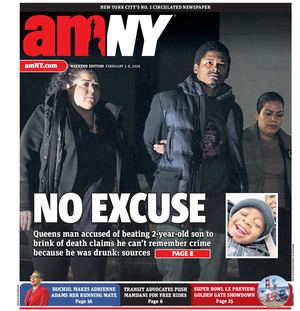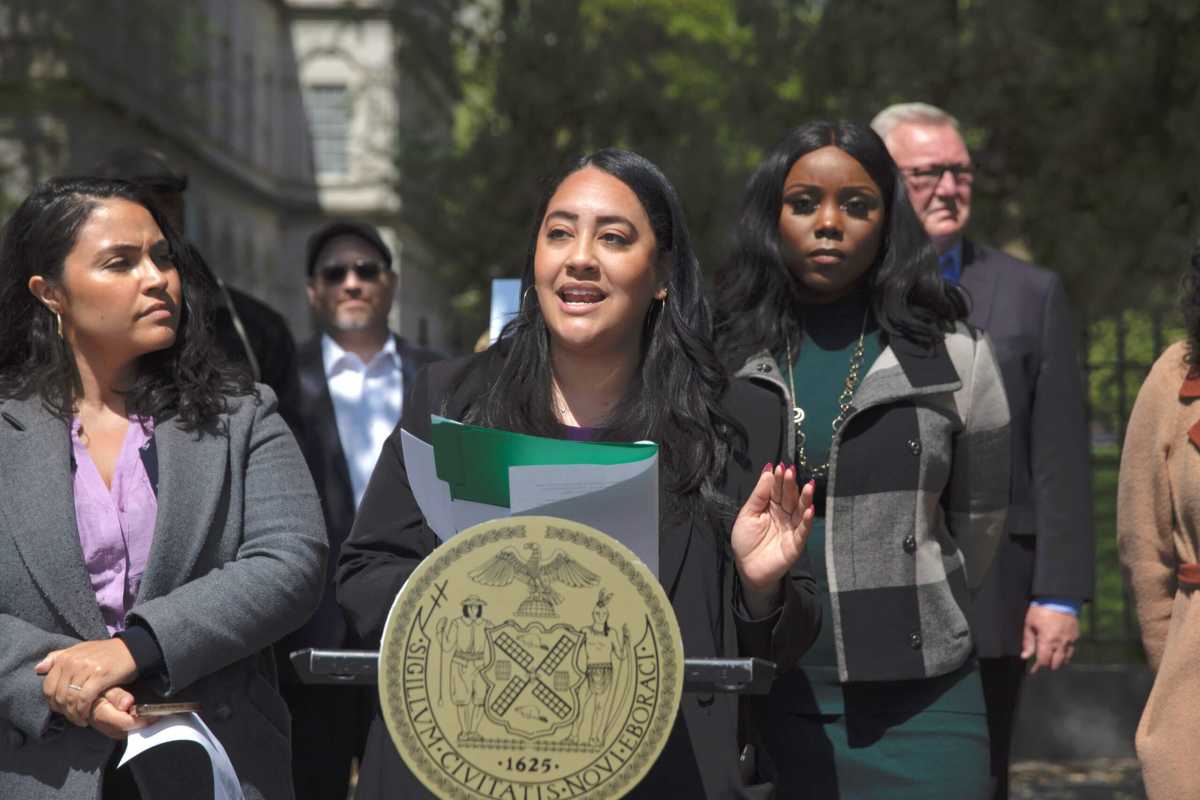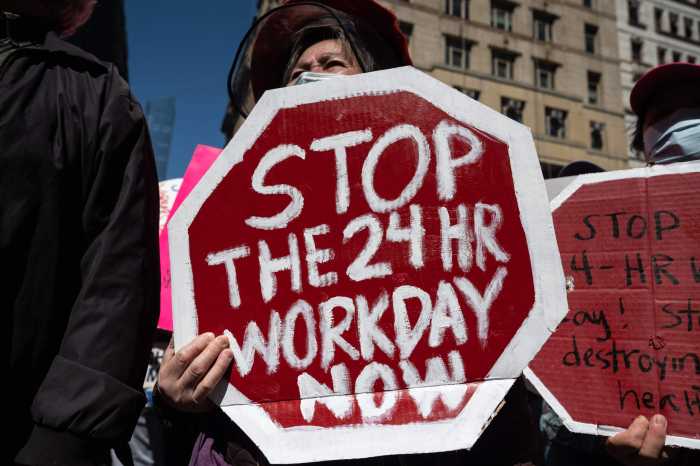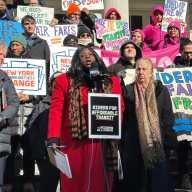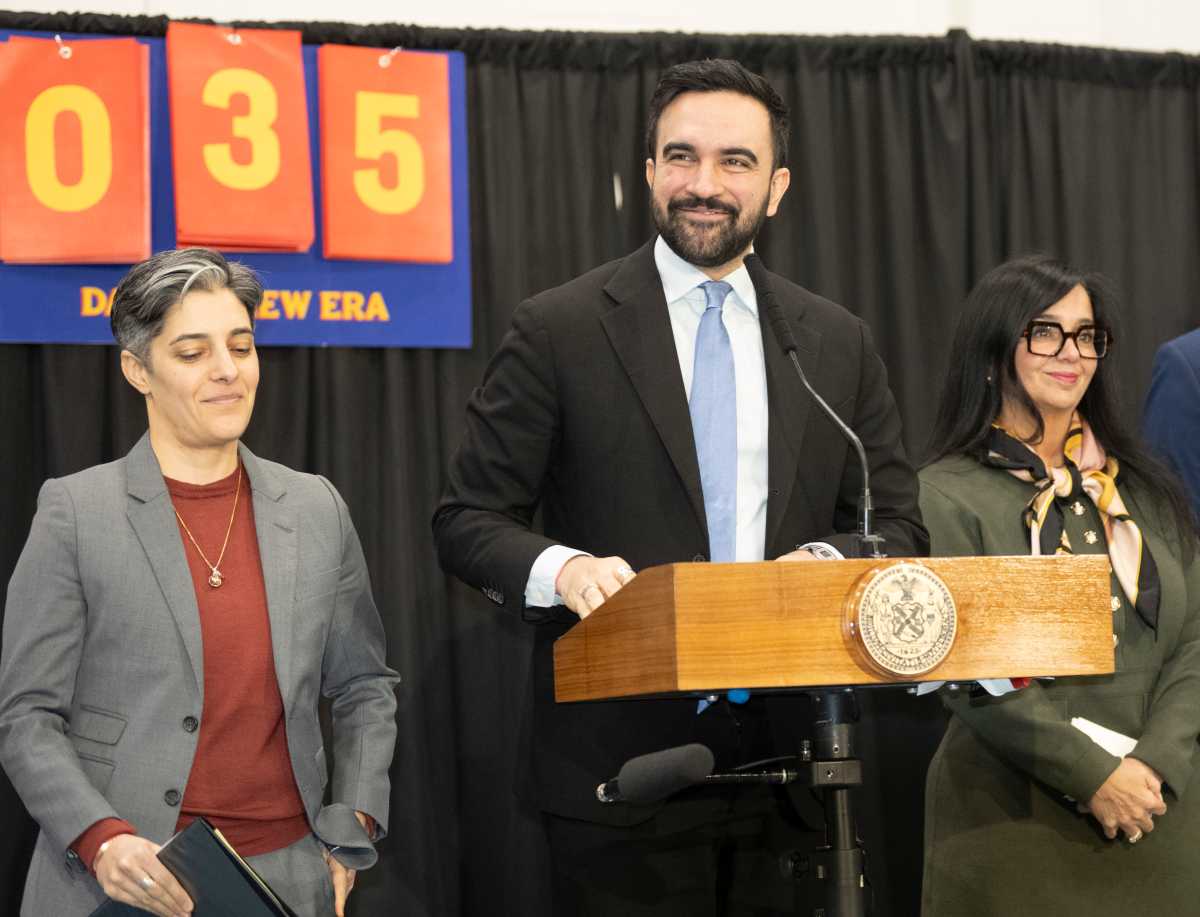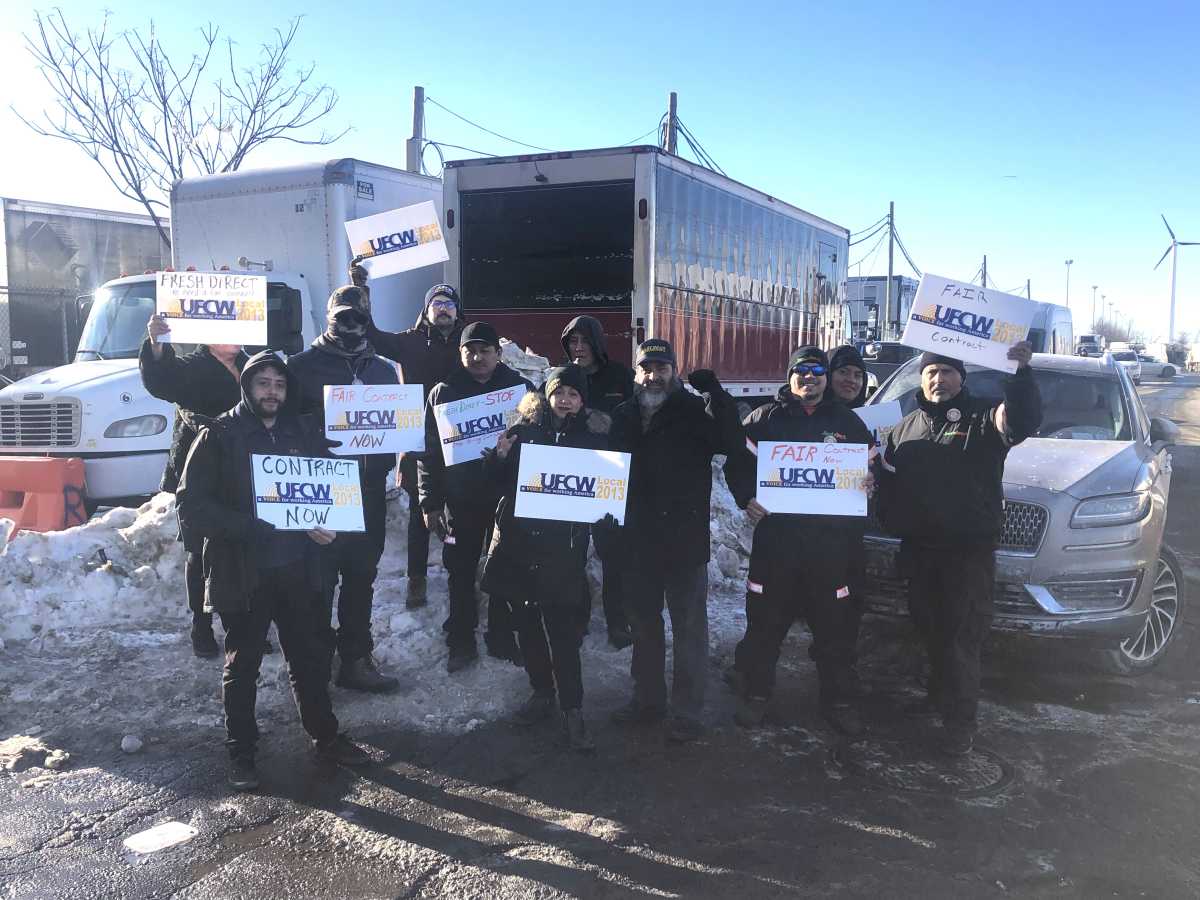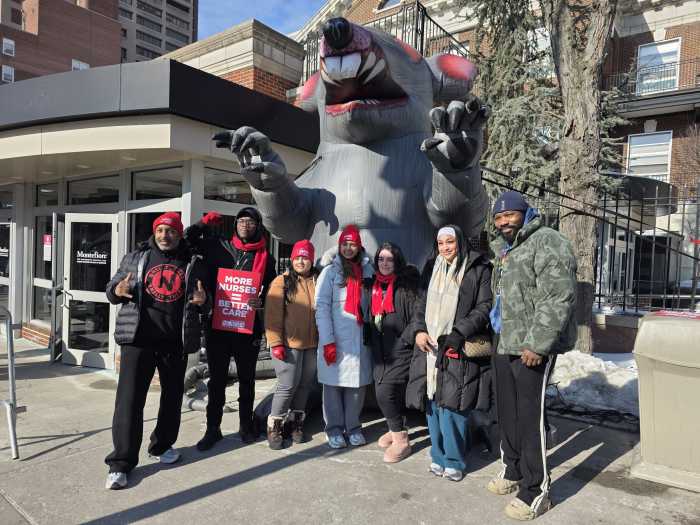A group of Councilmembers rallied Tuesday behind a bill that would trigger a study of the city’s industrial areas with an eye toward protecting manufacturing jobs and bringing green industry to New York City.
The legislation would require several city agencies to review NYC’s 16 Industrial Business Zones and produce a citywide plan. The agencies would be required to collaborate and come up with a series of development goals, as well as to make recommendations as to new landuse designations and local hiring strategies.
“We need plans of action around infrastructure needs and environmental issues, workforce pipelines and so much more,” said Councilmember Amanda Farías, who represents an industrial Bronx district. “Our [Industrial Business Zones] have been overlooked for decades.”
The Councilmembers say the legislation follows a national trend and was prompted by Washington’s passage of the Inflation Reduction Act as well as the CHIPS and Science Act, which are both aimed at creating jobs within the green energy sector and the semiconductor industry.
New York City has history as a strong industrial and manufacturing hub, but toward the end of the 20th century and the early 2000s, it experienced a sharp downturn. Zoning in the city’s industrial districts has remained largely the same over the past half century, while the types of businesses in areas such as Sunset Park, Brooklyn, and Maspeth, Queens, have shifted away from heavy manufacturing toward warehousing and logistics.
Farías and her co-sponsor, Councilmember Jennifer Gutiérrez, said that it is critical for the city to boost manufacturing while also protecting the environment. But first, they said, the city needs a centralized plan on how to best use its industrial land.
The bill would compel the city Department of City Planning, the Dept. of Small Business Services and Economic Development Corporation to collect data on employment, land use, economic incentives and environmental factors and submit a comprehensive plan by October 2024, which would first be subject to a public hearing.
“What this plan will do: it will focus on growth opportunities. We need to invest where we see the growth,” said Gutiérrez. “The plan will hopefully also call for an investment in infrastructure.”
Both sponsors of the bill are motivated by the fact that manufacturing jobs, more than other industries, largely have low barriers to entry and offer career growth, a boon to the Black, Latino and Asian communities.
“When we protect industrial business zones and industrial jobs, we are also protecting the working class in our working families,” said Farías.
The bill has the backing of several progressive councilmembers who appeared at the rally, as well as Council Speaker Adrienne Adams.
“I look forward to working with my colleagues and our partners inside and outside of government to cultivate industrial growth that advances our city’s success,” Adams wrote in a press release on the bill.
